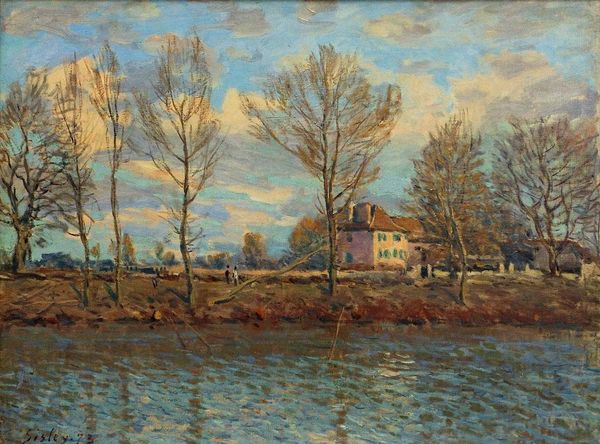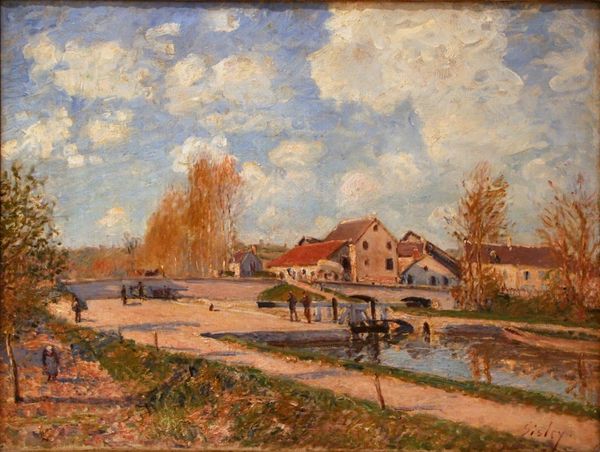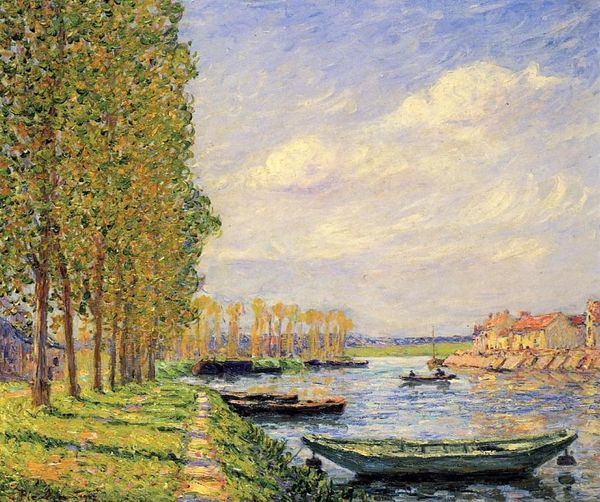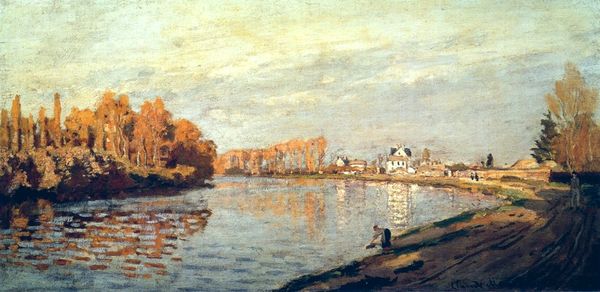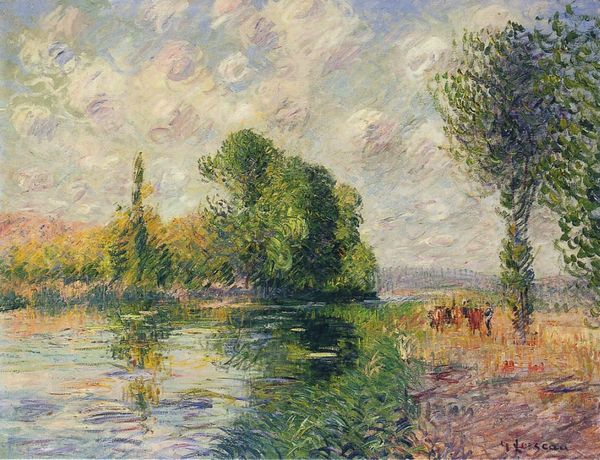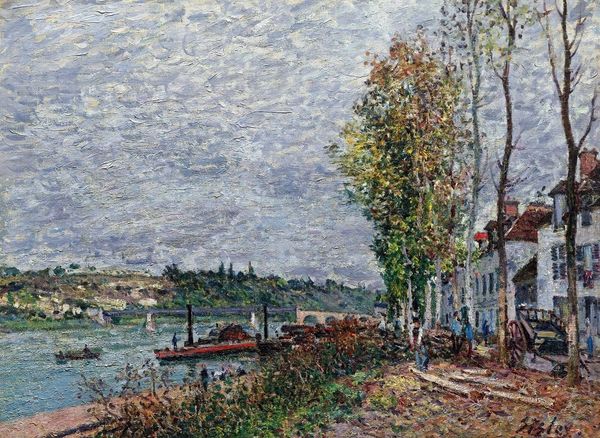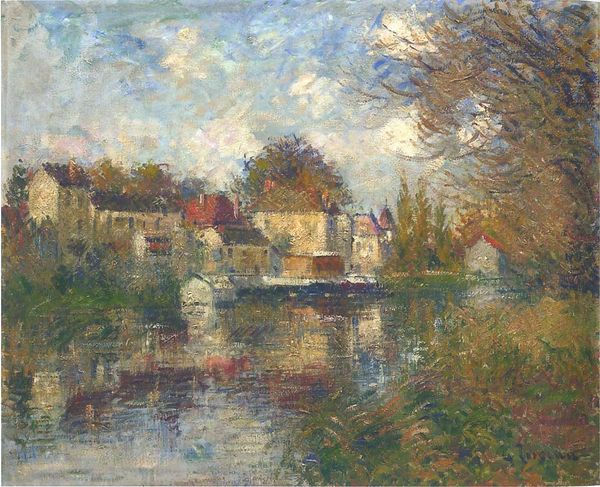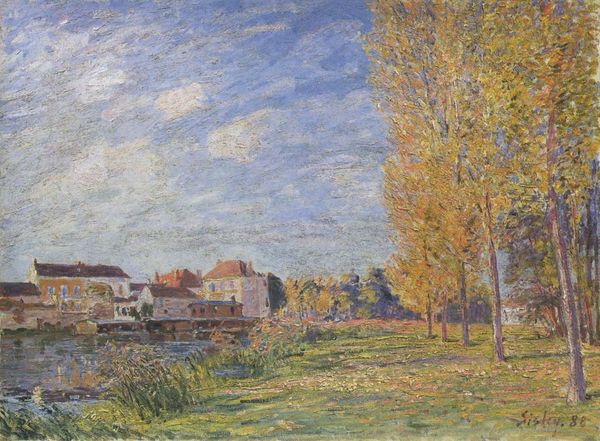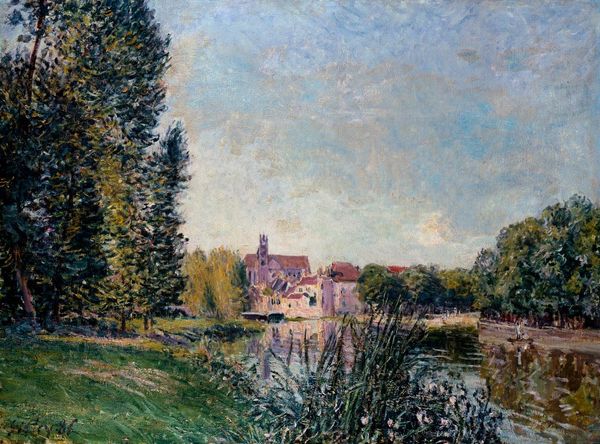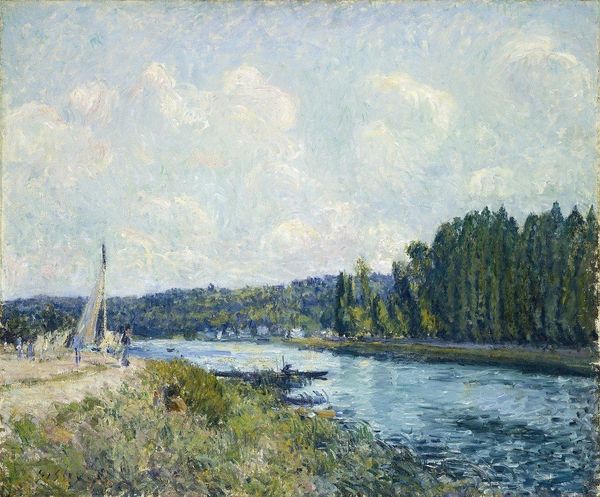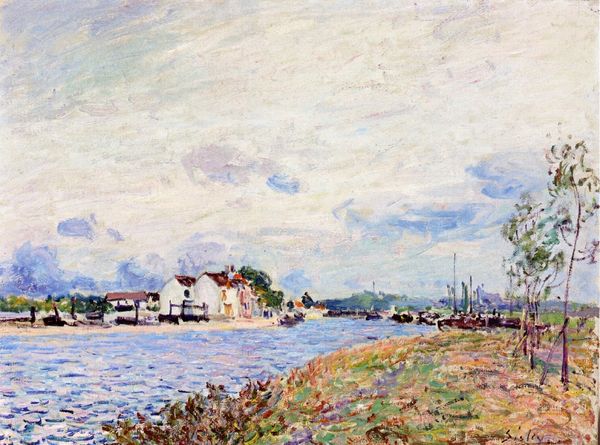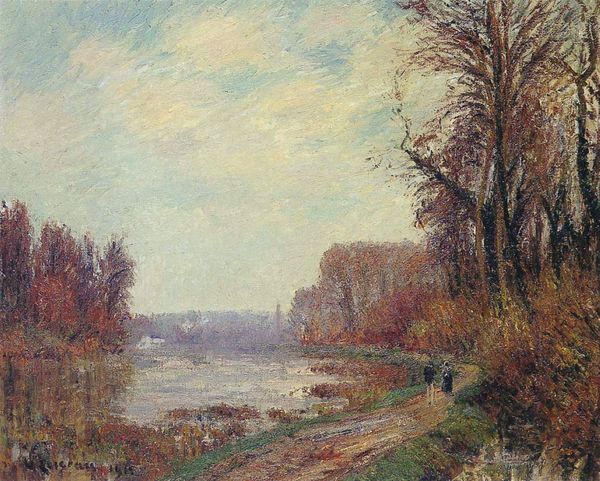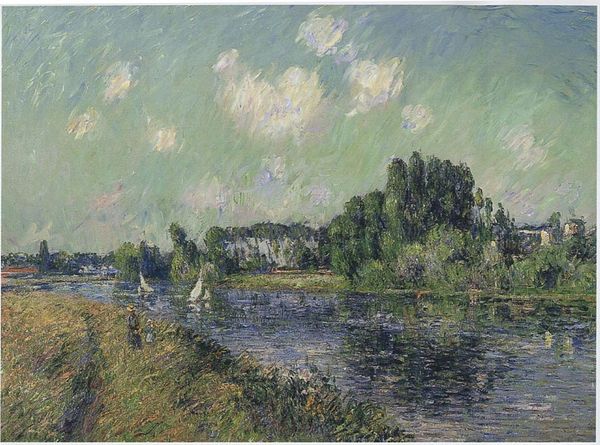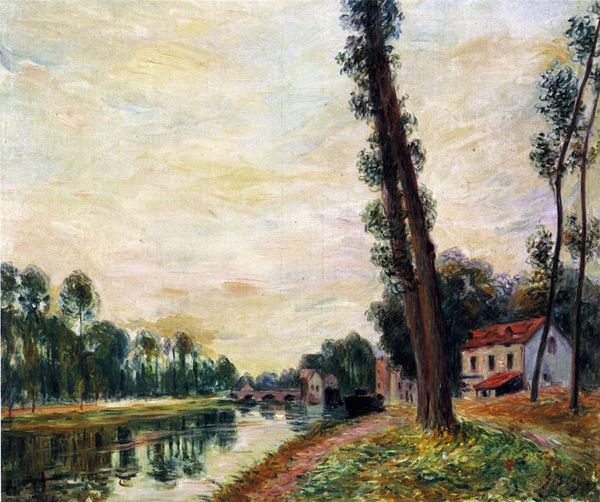
plein-air, oil-paint
#
impressionism
#
plein-air
#
oil-paint
#
landscape
#
impressionist landscape
#
oil painting
#
cityscape
#
realism
Copyright: Public Domain: Artvee
Editor: Here we have Alfred Sisley's "Moret-The Banks of the River Loing", created in 1877 using oil paint. The subdued colors give the painting a melancholic feel. What stories do you think it holds? Curator: This piece invites us to consider the socio-economic contexts of late 19th-century France. Sisley, unlike some of his Impressionist contemporaries, repeatedly engaged with the subtle, almost banal beauty of the working class’s landscape. What does the absence of idealized figures suggest to you? Is it merely an aesthetic choice, or does it allude to a deeper, unspoken narrative about class and representation? Editor: I see what you mean! By choosing to depict everyday life, Sisley might be challenging the art world's conventions that favored the upper classes. Curator: Precisely! And what about the location itself? Moret, while picturesque, was a place of industry and labor. Considering this, how does the "calmness" we perceive challenge the realities of the period’s rampant industrialization and its impact on the working class and their relationship with the natural world? Do you think there is a degree of melancholy about the depiction? Editor: Definitely. Perhaps he is using this peaceful scene as a subtle form of social commentary? The choice of muted tones might reflect that subdued position in society. Curator: It is as if Sisley is not just depicting a scene but subtly inserting the viewer into a moment of introspection, questioning the accepted narratives of progress and social hierarchies of that time. These impressionist works serve not just as art, but as points of discussion that encourage deeper sociological thinking. Editor: I never thought about Impressionism in that light! I was always focused on the art historical. Curator: That's the beauty of art; it's always teaching us something new about both the past and ourselves!
Comments
No comments
Be the first to comment and join the conversation on the ultimate creative platform.
